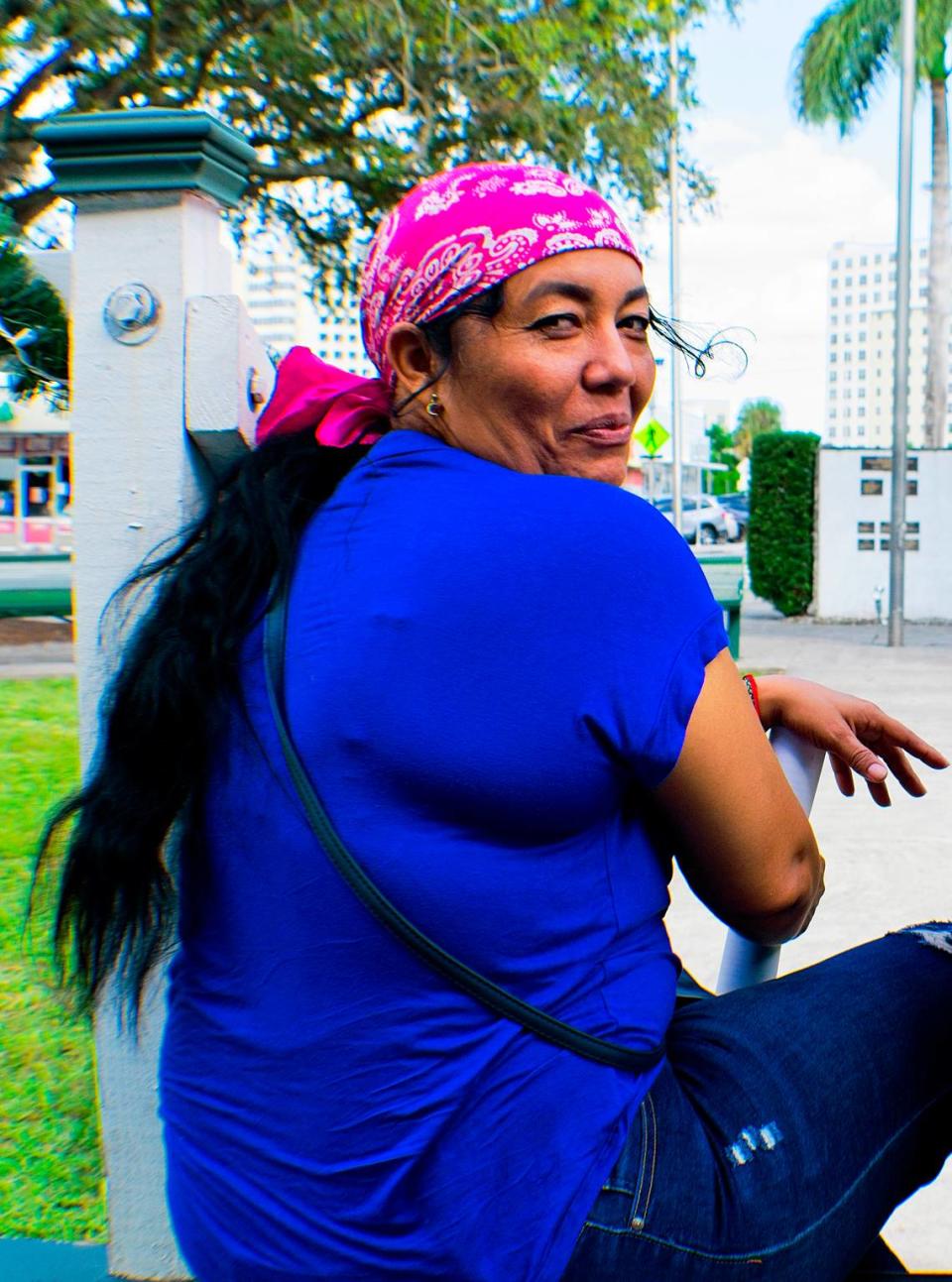One morning two years ago, while preparing for school, 13-year-old Jullianne Cruz-Palma suddenly felt excruciating pain, fell to the floor, and hit her head on a ceramic soap dish attached to her bedroom wall.
His mother, Wendy Cruz-Palma, heard the commotion and immediately rushed to his side. Jullianne was down and did not react. With no car and no one to turn to, she took her daughter and ran to a bus that would take them to the nearest hospital.
“I didn’t want to bother anyone with a car, I didn’t think they would help me. I thought I was going to lose it,” Cruz-Palma said. “I felt like I was dying.”
Cruz-Palma soon learned that her daughter had epilepsy.
Already in 2019, mother and daughter had left Honduras, a country terrorized by murders and kidnappings, and had settled in Miami Springs. They hoped it would be safer and they could find a better way of life.
Since Jullianne’s birth, the two of them had always been alone. After the diagnosis, finding the right treatment was difficult. Luckily, immigration officials put Cruz-Palma through Epilepsy Alliance Floridaa group that specializes in helping people with this brain disorder.
Jullianne, now 15, has made progress working with Karen Vélez, the organization’s case manager. Although Jullianne is still weakened by the disease, Velez describes the girl and her mother as a resilient couple.
“No matter what challenges they face, they always emerge stronger and more united,” Vélez said. “This little family has had many difficult experiences. […] They are a powerful team.”
Cruz-Palma said Jullianne had always been healthy, which made the epilepsy diagnosis all the more shocking. Starting to live in a new country was already a struggle, but the added burden of caring for a disabled child made her financial problems nearly insurmountable.
How to help: Wish Book is trying to help this family and hundreds of others in need this year. To donate, you can do it safely here.
Although she had the proper documentation to work, Cruz-Palma has faced countless difficulties in the job market, especially during the pandemic. She has taken various temporary jobs, from restaurants to construction.
Cruz-Palma has managed to lean on Medicaid, which pays for most of Jullianne’s medications and epilepsy treatment. However, the disease is still debilitating. Bright lights, anxiety, and stress can trigger seizures. Your condition is so bad that to work online you need to set the brightness of your computer to the minimum possible.
Her mother recounted episodes of discrimination Jullianne experienced at school: when she started high school, her PE teacher suspended her because her family couldn’t afford to buy the compulsory gym uniforms. In other classes, teachers expected her to finish her work in the short time between seizures and hospital appointments. Cruz-Palma said when that was impossible, they piled on more work. Her stress and lack of support drove her so far back in her studies that she risked suspension.

But, with the help of Epilepsy Alliance Florida, Jullianne persevered. After undergoing extensive neurological treatment for three weeks, her mother says, she finished all her homework in two days. Jullianne started taking medication every day and her school included her in a federal plan 504which legally identifies you as having a disability and details the accommodations the school will provide, such as short-time work and extended hours.
But the difficulties persist. When Wendy gets a job, she rarely earns enough to pay for her escalating expenses. She has to find someone to take care of her daughter while she works.
“It’s very important to keep going through the pain, but also to learn to live with it and overcome it,” Wendy said. “The pain I faced will always be on my mind, but I know I will survive.”
Wendy and Jullianna recently received an eviction notice giving them 30 days to vacate their home. They have no family in the US, so they don’t know what the future holds.
Cruz-Palma and Jullianne have a wish book request: gift cards to buy food and clothes. When the two arrived in Florida in 2019, they were eligible for food stamps to buy groceries, but about four months ago their application was denied, and finding money for meals has become their biggest concern.
Having clothes that fit and last may seem like a small thing, but it would be a huge relief for this family.
Wendy is looking for a job or someone who needs paint or home repair work.
“We are warriors of God and together we will never fall,” said Cruz-Palma. “My daughter is dedicated and intelligent, and we will continue to move forward, preparing for whatever obstacles life throws our way.”
How to help: Wish Book is trying to help this family and hundreds of others in need this year. To donate, pay securely to MiamiHerald.com/wishbook.
How to help
To help this Book of Wish candidate and this year’s 100+ candidates in need:
▪ To donate, use the coupon in the newspaper or pay securely online via www.MiamiHerald.com/wishbook
▪ For more information call 305-376-2906 or email [email protected]
▪ Popular items tend to be laptops and tablets for school, budget furniture and vans
▪ Read all the stories from the book of wishes on www.MiamiHerald.com/wishbook
This article was written for Florida International University’s (FIU) South Florida Media Network.
